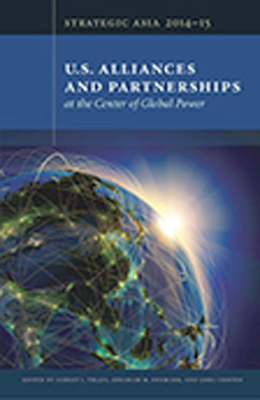Source: National Bureau of Asian Research
Co-edited and introduced by Ashley J. Tellis, the 2014-15 Strategic Asia< volume examines the trajectories of U.S. alliance and partner relationships in the Indo-Pacific in light of the region’s shifting strategic landscape. Leading experts provide comprehensive assessments of the current state of the United States' relations with its five treaty allies, as well as with emerging "strategic partners" in Asia, and draw implications for U.S. policy.
Order this book, or read the introduction by Ashley J. Tellis for free.
About the Editors
Ashley J. Tellis is a Senior Associate at the Carnegie Endowment for International Peace and Research Director of the Strategic Asia Program at NBR, served in the U.S. Department of State as senior adviser to the Undersecretary of State of Public Affairs, and previously as senior adviser to the Ambassador at the U.S. Embassy in India. He also served on the National Security Council Staff as special assistant to the President and senior director for Strategic Planning and Southwest Asia. He is the author of India’s Emerging Nuclear Posture (2001) and co-author of Interpreting China’s Grand Strategy: Past, Present, and Future (2000), as well as the co-editor of the ten most recent volumes of Strategic Asia, published by NBR.
Abraham Denmark is Vice President for Political and Security Affairs at the National Bureau of Asian Research.
Greg Chaffin is a Project Manager with the Political and Security Affairs group at the National Bureau of Asian Research.
